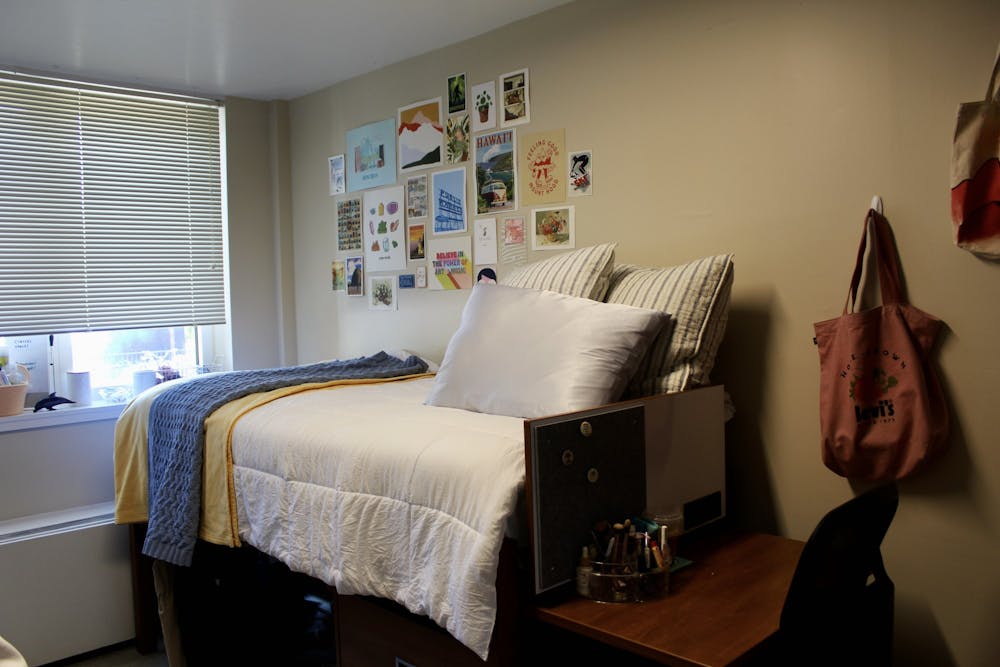If you haven’t noticed, Grounds has come alive again. Students are filling up the library, lining up for coffee at Starbucks and hustling to class. First years are getting a feel for their surroundings. For many, this is their first time living away from home — they are learning how to be responsible for their laundry, meals and general well-being. They now must take care of themselves in ways that they might not be previously used to. Living in a dorm — as all first-years are required to do — provides the perfect opportunity to learn and grow into their newfound independence. It is for this reason I support University President Jim Ryan’s plan to require all first and second-year students to live on Grounds. A two-year living requirement will expose students to a myriad of learning situations that they would get less of or miss altogether if only on Grounds for a single year.
I have a different view on living on Grounds than most. I went to boarding school, so I was familiar with communal bathrooms, roommates and rowdy neighbors, while most of my peers were still living fulltime with their parents or caregivers. When I first got to college, I observed that I was miles ahead of my peers. I knew that I couldn’t stay up until 3 a.m. on a Monday and still function for class the next day. I knew that I needed to stay on top of the laundry to keep it from piling up. I learned that you need to hit the salad bar at the dining hall and not just the dessert station to stay healthy.
While living off Grounds teaches University students important things — like paying the gas bill or splitting rent and other living costs with roommates — it does so by throwing them in the deep end and hoping they don’t drown. On the other hand, living on Grounds in a University-run dorm or apartment provides a much safer place to learn independence. Forgetting to pay your power bill or rent off Grounds can lead to eviction or the power being cut off. Student Financial Services, on the other hand, will put a hold on your account if you miss a payment. On-Grounds housing is a safer place to make mistakes and learn to survive without someone watching you 24/7 before you have to make it in the real world. Resources like resident advisors provide cushioning as you learn to be independent. An additional year will help students get ready for the real world.
A second year on Grounds gives students the opportunity to really acclimate themselves to living independently. Perhaps the University should house all first-years in traditional dorms and second-years in apartment-style housing. This would make the second year an ample time to learn how to do other things, like deep cleaning a bathroom or grocery shopping to stock a full-sized kitchen, that are uncommon in a traditional double-style dorm experience. This second year would provide ample opportunity to further develop independent living skills. A different housing environment would help students become adaptable to the living situations they will face in the world after graduation.
A two-year on-Grounds living requirement would not only help students learn valuable life skills, like cooking, cleaning and financial responsibility, but it would also provide them with important social experiences. Plenty of other institutions, like William and Mary and the University of Pennsylvania, require students to live on campus for four semesters. Policies like these are backed up by extensive studies that find students who live on campus see more success academically and feel more connected to their college.
Some of my favorite and most formative memories from high school happened solely because I went to boarding school and lived with my friends. There is never a better opportunity to get closer with someone than sleeping eight feet away from each other and sharing a mini fridge or cooking together in the communal lounge. Students who live on Grounds for longer will ultimately feel more at home and more connected to the University as a community.
Despite all of the realized and potential benefits, on-Grounds housing may prove to be financially inaccessible to many students — as many currently choose to move off Grounds in hopes of lower rent. The cheapest option for an upperclassmen on-Grounds costs $7,130 for an academic year, while you can find a bedroom off-Grounds for less than $700 a month, depending on the area and roommates. And so I offer my advice with a caveat — should the University decide to require students to live on Grounds for two years, then it must assure that such a policy will not present a financial burden to students. The University should make on-Grounds housing cheaper — especially if all students will now be paying for two years on Grounds, not just one.
In the University’s quest to curate the “most vibrant community in higher education,” a two-year on-Grounds living requirement makes perfect sense. It is a great inclusion in the 2030 strategic plan. By living on Grounds for longer, students will have more opportunity to interact with people they might not have otherwise crossed paths with. This is a great step in creating the community the University is looking for in its plan for the upcoming decade. Better yet, everyone will reap the benefits, with students gaining valuable social experiences and life-skills. A two-year living requirement is something to embrace, not reject.
Riley Lorgus is an Opinion Columnist for The Cavalier Daily. He can be reached at opinion@cavalierdaily.com.
The opinions expressed in this column are not necessarily those of The Cavalier Daily. Columns represent the views of the authors alone.







